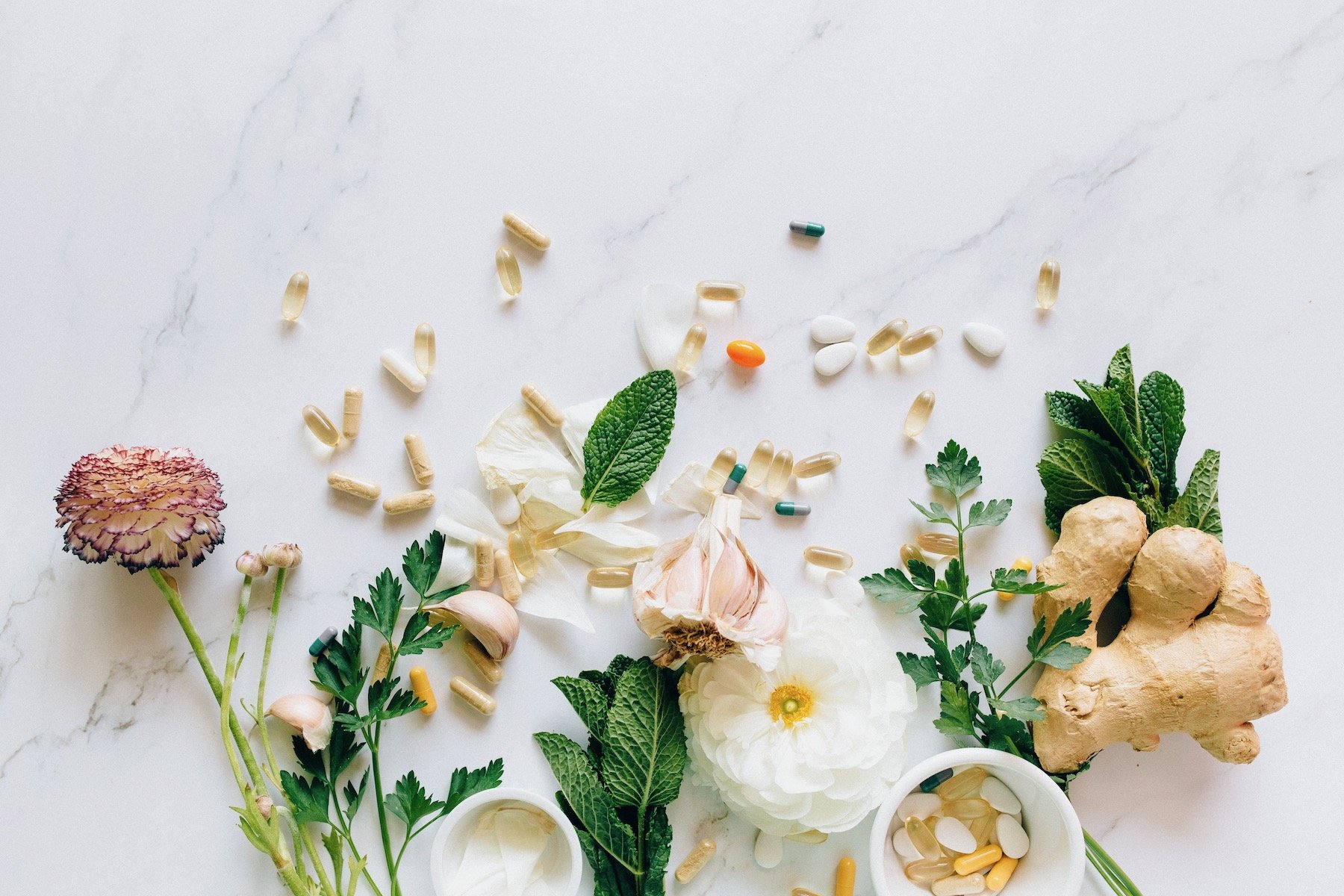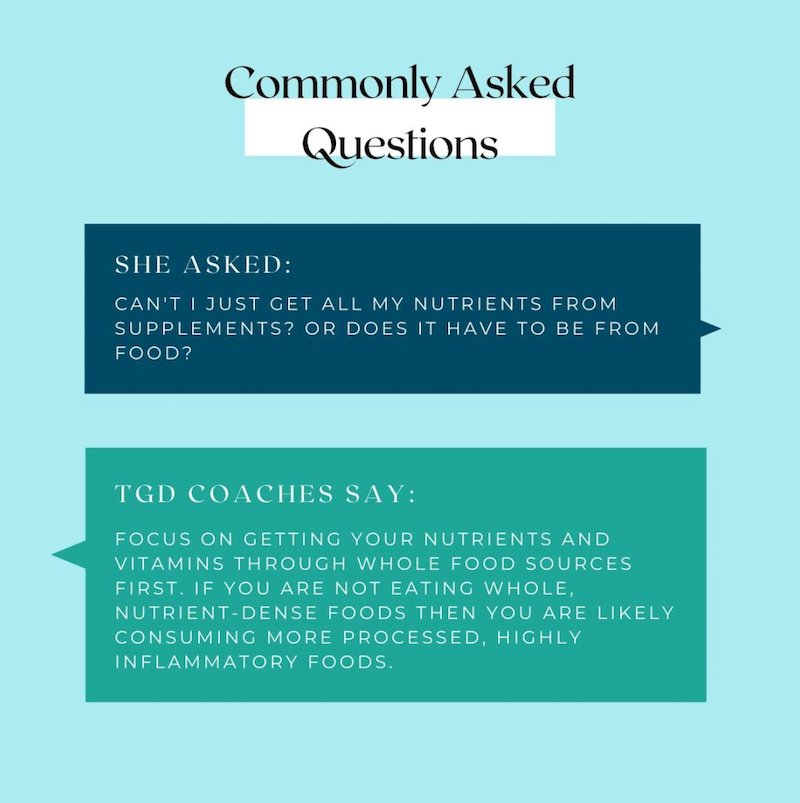6 Anti-Aging Supplements With Actual Data
by The Candidly Team
Like so many things made inside a lab, supplements can be… confusing. Add to that, the exhausting anti-aging market, the InstaScams, and the piles of conflicting research, and we have ourselves a real brain-breaking mess when it comes to figuring out what might actually help with aging.
And look, no one is trying to “turn back the clock” here. All we want is look and feel as radiant as possible at our exact age – to fire on all cylinders so to speak and enjoy ourselves in the process.
OK sure, we also want glass skin, boundless energy, and hair that stays attached to our heads, but the point is so much of all of this has to do with what we put inside our bodies.
So while we all know, the best way to get the nutrients we need is through the food we eat, we decided to ask Dr. Marie Claire Haver, founder, creator, and now author of The Galveston Diet to give her take on the oft confusing, sometimes squishy world of supplements.
Naturally, every human body has its own needs. Any supplement we take should be discussed with our doctor. A lot of data is emerging, new, or changing. More research is always, always needed. And some studies are even cautioning against the use of certain common supplements. So, please take this with ongoing curiosity and a big old grain of salt. Unless of course you have high blood pressure.
OK, so with all of these fun disclaimers out of the way, let’s get into it.
According to Haver the “ideal youth” that anti-aging treatments aim to maintain is characterized by “good health, lean muscles, a strong immune system, good memory, and a healthy brain.” Like anything, there is a limit to how much you can take, but if taken as directed then there are some that could have good benefits. Here are the supplements Dr. Haver feels may have anti-aging potential:
1. Curcumin
You’ve probably heard the praises sung of turmeric, that bright-colored spice you add to things to feel healthy and chefy. But really all of turmeric’s attributes come from one of its components called curcumin. According to Haver, curcumin may decrease oxidative inflammation (one of the causes of aging) and improve brain health.
Some research suggests curcumin can also help tame certain menopausal symptoms, reducing belly fat, inflammation, hot flashes, and osteoarthritis symptoms, while boosting gut-microbiome and heart health (when mixed with exercise).
Word of caution: experts say turmeric and curcumin should be avoided by people on blood thinners.
2. Collagen
We know. There’s been a bit of a frenzy around collagen, and we’re all sort of left wondering if it actually does anything to reduce wrinkles, improve elasticity, completely obliterate the demand for Botox, etc. When tackling this question, Haver cites a 2022 study, which found “both oral and topical collagen can contribute to reducing or delaying skin aging.”
But alas, its benefits could go deeper and possibly help with bone aging in women. This idea comes from a 2021 study on people with osteoporosis or osteopenia, which concluded that long-term supplementation with “specific bioactive collagen peptides” appears to be effective in counteracting losses in bone density.
3. Coenzyme Q 10
Coenzyme Q10 (CoQ10) is an antioxidant that naturally exists in our bodies. It helps protect our brain, heart, and muscles but diminishes as we age. According to the Mayo Clinic, “CoQ10 supplements might be beneficial for treating conditions such as congestive heart failure and preventing migraines.” Yet, one 2019 study discussed its benefits as an anti-aging agent, specifically as it relates to oxidative stress
4. Vitamin E
Research on middle-aged and elderly adults showed that a chemical found in vitamin E known as tocotrienols may have “potential beneficial anti-aging action with respect to cognitive impairment and DNA damage.”
Vitamin E is definitely something to talk to your doctor about before taking as it can pose serious health risks. The Mayo Clinic warns of findings that its oral use “might increase the risk of prostate cancer” or “increase the risk of death in people with a severe history of heart disease.” It can increase bleeding risk and interact with many conditions, so certain people shouldn’t take it. In addition, there’s concern about people in poor health who take high doses of vitamin E being at increased risk of death.
5. Resveratrol
Resveratrol is a plant compound found in things like grape skins. And yes, it’s in red wine. Some studies have touted resveratrol’s “tremendous potential in the prevention and treatment of aging.” Its star attribute is the notion that it could extend one’s lifespan, but it’s also speculated to “protect against a series of age-related diseases, such as neurodegenerative diseases, cardiovascular diseases, sarcopenia, cancers, infertility, and osteoporosis.”
There’s still a lot of research debating the pros versus cons, so stay tuned could be a solid takeaway on this one.
6. Vitamin D
According to Haver, vitamin D can benefit bone and muscle health, two things we obviously need to maintain as we get older. It can also be another tool in our toolbox to fight inflammation.
It’s worth noting that recent research, which brought into question the safety of certain dietary supplements found that “people with no sign of vitamin D deficiency who use vitamin D supplements may have an increased risk of all-cause mortality.” So, not to sound like a broken record, but talk to your doctor about this one, too.
This article is for informational purposes only. It is not intended to be used in place of professional advice, medical treatment, or professional care in any way. This article is not intended to be and should not be a substitute for professional care, advice or treatment. Please consult with your physician or healthcare provider before changing any health regimen. This article is not intended to diagnose, treat, or prevent disease of any kind. Read our Terms & Conditions and Privacy Policy.



